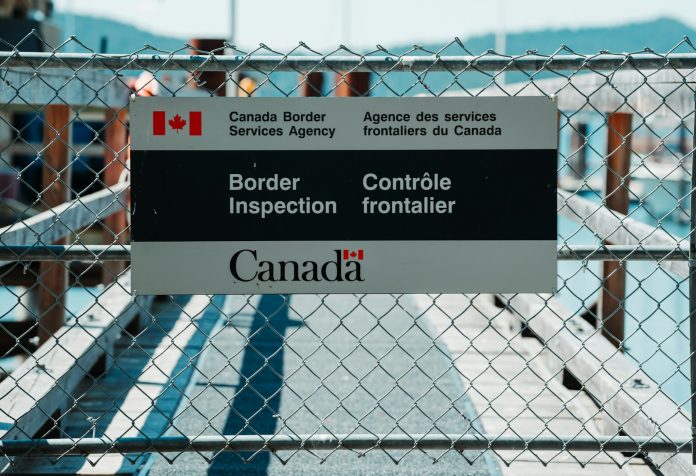
Losing a job in Canada as a person with a temporary working permit is a stressful situation. This can be an anxious time especially to foreigners who work and rely on their jobs in order to retain their legal status. Being aware of the legal consequences and possibilities is the key to remaining as a resident in the country, getting new opportunities, or becoming a permanent resident.
Its management after job loss comprises time-bound measures and long-term proposals. The different work permits have various rules and the things you have to do will vary according to your personal condition. Be it temporary foreign worker, international graduate with a post-graduation work permit or being in the process of waiting to get a permanent residence in this country, understanding your rights and entitlements may empower you to make an informed choice.
Understanding The Impact On Your Work Permit
The working permit you are possessing determines much of your freedom after losing your job. In case you are under an employer-specific work permit and is commonly known as the closed work permit, then you can only work with the employer whose name had been indicated in your work permit. When you lose your job with such a type of permit, you are unable to work any more unless you get back your status successfully or apply once again on a new permit with another employer.
Conversely, in case you have an open work permit, either post- graduation work permit or a spousal open work permit, you might not need to switch to a different permit in case of a loss of your job. Such authorizations enable you to acquire a new job without the need to take a new permit. Nevertheless, with an open permit, you still need to make sure that your losing a job will not impede its impact on the concerned immigration procedures or immigration alienage conditions with relation to your home.
Maintaining Legal Status After Job Loss
Decent living is not the main issue that crosses the mind of many workers after losing a job, the main concern is staying within the Canadian borders. Most of the time people are given 90 days after a job has ended with which they can revert their status or alter them. This is some kind of amnesty and is called the restoration period during which foreign workers have an opportunity to submit a new work permit, change to a visitor status, or may undertake other official measures that will enable him or her to stay in the country. It is important that one acts in this time period and care should be taken not to extend the authorized stay as this may prove to be a very costly issue.
When you intend to reside in Canada as you seek another job, you are supposed to have the right status so that you do the search spotlessly. The first is to submit an application as a visitor; this is the option that does not grant you a possibility to work but provides you with time to file a new application. Alternatively, one can seek the employment of a new employer who would be willing to introduce a work permit application. In both scenarios, it is advisable that you consult a lawyer under Canada immigration to make your decision and for your application to be well done.
Applying For A New Work Permit
When you are qualified to apply for a new work permit, further steps are to be taken depending on the characteristics of a new job and what kind of permit you are interested in. Where a specified employer permit is needed, your potential employer will be expected to first get a Labour Market Impact Assessment (LMIA) and then apply to be issued with the same. This may be time-consuming and may require the need to prove that no Canadians citizen or permanent residents are in the market to occupy the position.
However, there is a chance that you can apply faster, in case your occupation is in an LMIA-exempt group. Examples of pathways that could be used to qualify employees with exemptions under LMIA-exempt work permits are international agreements, intra-company transfers, and special public policies. An immigration attorney who is knowledgeable can help you ascertain your eligibility and draft the documentations that are required. The faster you start the process the less likely you are to experience a lapse of your legal status.
Handling Emotional And Financial Stress During Transition
Life after losing a job is both economical and emotional. In addition to the issues of immigration, you can engage in housing, financial planning and mental health. The best way of dealing with the situation is to ensure that you maintain contact with the provisions available and also, to be proactive about your options. Accessing support networks, employment services, lawyers and legal aid will also make you feel safer and able to take charge in this period.
It is also relevant to keep the record of your search attempts to obtain a new job and to remain in status, which may be essential in case you decide to justify in the future gaps or restoration applications. The maintenance of the application receipts, communication with the Immigration, Refugees and Citizenship Canada (IRCC), and messages with the potential employers can be helpful both legally and practically.
Knowing When To Seek Legal Help
The laws governing immigration in Canada are not simple and a slight mistake of timing or misplaced documents with big consequences can be caused. It is particularly so in cases where there is restoration of status, alteration of permits, or application of PR when a person has lost his/her job. Although it is possible to complete certain things on their own, many people are not able to obtain peace of mind and clarity working with a Canada immigration lawyer.
Experienced Immigration lawyers are able to assist you examine all the possible possibilities and come up with the most ideal applications possible, they can take you through the actions to be taken to dismiss procedural errors amongst other relevant aspects. Sometimes you will need assistance in drafting a restoration letter, or a new permit, or a plan of permanent residency to which an immigration lawyer can be of great advice.
Conclusion
When you lose your job as you were residing in Canada on a temporary basis, it raises a fallback but it does not imply that you have to call it quits in Canada. Knowing perfectly what you can do and acting promptly, you may reclaim your status, request a new permit, or even proceed with the process of becoming a permanent resident. The central thing is to be well informed, take immediate decisions and consult where the help is needed. The immigration system in Canada has several opportunities, and having a proper plan, you may locate a legal way that suits you and your objectives.










